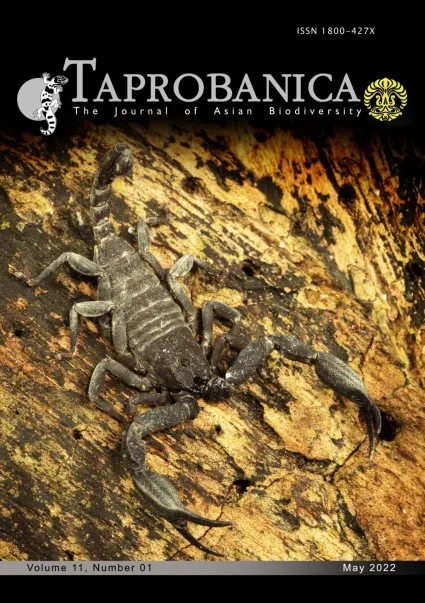

v11i1.279
Volume 11 | Number 1 | May 2022
Short Note
ISSN: 1800-427X (printed)
eISSN: 1800-427X (online)
DOI:10.47605/tapro.v11i1.279
Submitted date: 18 August 2021
Accepted date: 13 January 2022
Published date: 23 May 2022
Pp. 42–43, Pl. 13.
Two non-native cichlid fish species from the natural waters of Chennai, India
G. Aravind* & J.D.M. Knight
*Corresponding author. E-mail: aravind_manoj@yahoo.com
Non-native fish are introduced throughout the world mainly for improving fisheries, sport, ornamental fish trade and bio-control of mosquitos. The aquarium trade has not come under the scanner of environmentalists, conservationists, ecologists, and policy makers as much as trade in terrestrial endangered species. The avenues from captivity to the wild include the dumping of unwanted fishes, escape from tanks and breeding farms perhaps during storms, and unchecked drainage of water containing organisms from tanks, and public aquaria. Such organisms are usually healthy adults, which have a greater probability of surviving and reproducing in the wild. Introduced aquarium fish represent a major source of ecological destruction that may be locally alarming if ignored.
Section Editor: Upali S. Amarasinghe
eISSN: 1800-427X (online)
DOI:10.47605/tapro.v11i1.279
Submitted date: 18 August 2021
Accepted date: 13 January 2022
Published date: 23 May 2022
Pp. 42–43, Pl. 13.
Two non-native cichlid fish species from the natural waters of Chennai, India
G. Aravind* & J.D.M. Knight
*Corresponding author. E-mail: aravind_manoj@yahoo.com
Non-native fish are introduced throughout the world mainly for improving fisheries, sport, ornamental fish trade and bio-control of mosquitos. The aquarium trade has not come under the scanner of environmentalists, conservationists, ecologists, and policy makers as much as trade in terrestrial endangered species. The avenues from captivity to the wild include the dumping of unwanted fishes, escape from tanks and breeding farms perhaps during storms, and unchecked drainage of water containing organisms from tanks, and public aquaria. Such organisms are usually healthy adults, which have a greater probability of surviving and reproducing in the wild. Introduced aquarium fish represent a major source of ecological destruction that may be locally alarming if ignored.
Section Editor: Upali S. Amarasinghe
- List of Articles & Contents





